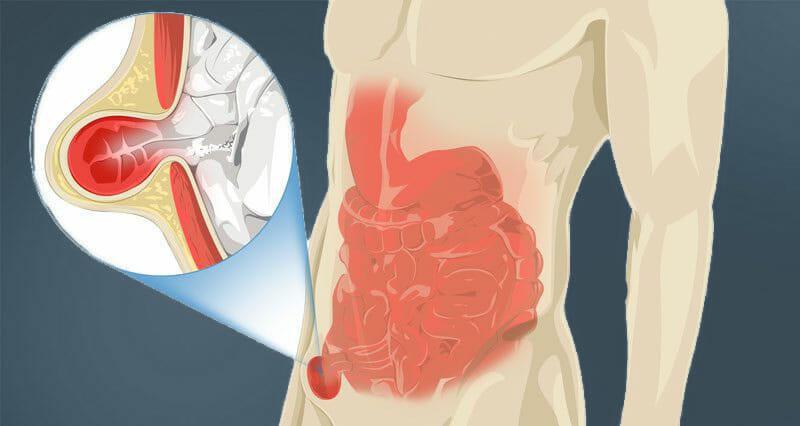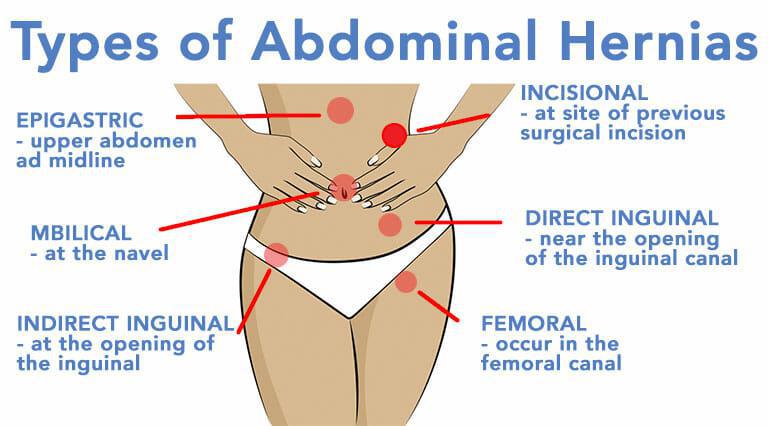Hernia Surgery
What is a Hernia?
A hernia is a piece of tissue — often your intestine — that pokes through a weak spot into another part of your body. If you have a painful hernia, the surgical team at AMI Surgery in Stamford, Connecticut, and Port Chester, New York, can help. They excel in using minimally invasive techniques to repair hernias and strengthen weak tissues to prevent any recurrence. To learn more about hernia surgery, schedule a consultation with us today.

Request Appointment
What Causes Hernias?
Hernias happen one of two ways:
1) ACQUIRED: you overexerted yourself
2) CONGENITAL: you were born with it
There are natural areas of potential weakness throughout our abdominal wall. Hernias can develop in these or other areas due to heavy strain, aging, injury, an old incision, or a weakness present from birth.
Hernias can occur at any age and are more common in men. Most hernias in children are congenital. In adults, a natural weakness or strain from heavy lifting, persistent coughing, or constipation can cause the abdominal wall to weaken or separate resulting in a hernia.
How do I know if I have a hernia?
Larger hernias are usually easy to identify, although smaller ones may be a bit more challenging. Hernias present as a bulge under the skin that may come and go depending on your position (standing vs. lying down) or during periods of straining or exertion (lifting a heavy object or coughing). Some bulges are painless, while others may present as severe pain.
Most people experience a dull ache that may worsen during periods of prolonged standing or during periods of exertion or straining. The severe, continuous pain, redness, and tenderness are signs that the hernia may be entrapped or strangulated. These symptoms are cause for concern and you should seek immediate attention.
What are the different types of hernia?

The most common hernias are:
- Inguinal (groin), the most frequent type
- Sports hernia (groin area)
- Umbilical, around the belly button
- Incisional, through a scar
- Hiatal, a small opening in the diaphragm that allows the upper part of the stomach to move up into the chest
Other existing types of hernias:
- Spigelian hernia, (lateral ventral hernia)
- Femoral hernia, (below the groin/inguinal area)
- Epigastric hernia, (upper abdominal wall hernia)
- Internal hernia, (hernia within the abdominal cavity)
Why might I need hernia surgery?
Hernia surgery might be necessary if you have a hernia, in which weakness or defect in your abdominal wall allows your intestines or other tissues to bulge through. The result is much the same as an inner tube pushing through the wall of a damaged tire.
As time passes and the hernia gets bigger, it might become painful. In some cases, hernias result in serious complications that require emergency surgery.
What types of hernias might require surgery?
You may need surgery if you have any of the following types of hernia:
- Inguinal hernia in your groin
- Sports hernia
- Umbilical hernia around your belly button
- Incisional hernia through a scar
- Hiatal hernia in your diaphragm
- Spigelian hernia (lateral ventral hernia)
- Femoral hernia below the groin area
- Epigastric hernia in your upper abdominal wall
- Internal hernia within your abdominal cavity
It’s usually quite easy to identify large hernias, but smaller ones may not be so obvious. You might be able to see the hernia bulging under your skin, and it may worsen when you cough or exert yourself. It might also disappear when you lie down.
Hernias typically cause a dull ache that may get worse as the hernia bulges further. If you have severe, ongoing pain with redness and tenderness, you might have a strangulated or trapped hernia requiring immediate medical attention.
Is surgery the best option for a hernia?
Surgery is very often the best option for hernias, which don’t improve over time and are likely to get worse. There are very few effective non-surgical treatments for hernias.
A hernia belt or abdominal binder might help stop the hernia from bulging in the beginning, but it isn’t a long-term solution. It’s also possible for these methods to encourage scar tissue formation around the hernia, which can make it more difficult to repair.
What type of hernia surgery might I need?
AMI Surgery offers a variety of hernia surgeries at their state-of-the-art facilities, including:
Tension-free laparoscopic hernia surgery
Laparoscopic surgery uses minimally invasive techniques that only require small incisions. The advantages of this approach include minimal pain or discomfort, minimal to no scarring, and a fast recovery.
It’s a same-day surgery that involves a general anesthetic. You can have several hernia repairs done at the same time.
Tension-free conventional hernia surgery
This method is a conventional, open technique that uses mesh to bridge the defect. It’s also a same-day surgery, and you might only need a local anesthetic.
AMI Surgery also specializes in using robotic-assisted surgery for hernia repair, with the focus always being on patient safety. The practice also accepts most insurance plans.
What is the recovery period for laparoscopic hernia repair?
The recovery period for laparoscopic hernia repair is significantly shorter than after open surgery. Most patients can return to work 7-10 days after their surgery, with some being fit after only 2-3 days.
To find out which hernia surgery option is best for you, talk to AMI Surgery’s bilingual surgeons and staff by calling the office nearest you or booking an appointment online today.
Request Appointment
LEARN MORE ABOUT OUR SERVICES
Acid Reflux
more info
Aesthetic Treatments
more info
more info
more info
Gastric Banding
more info
Gastric Bypass
more info
Gastric Sleeve
more info
General Surgery
more info
GERD
more info
more info
more info
Laparoscopic Surgery
more info
more info
more info
more info
more info
Sclerotherapy
more info
more info
Varicose Veins
more info
more info
OUR LOCATION